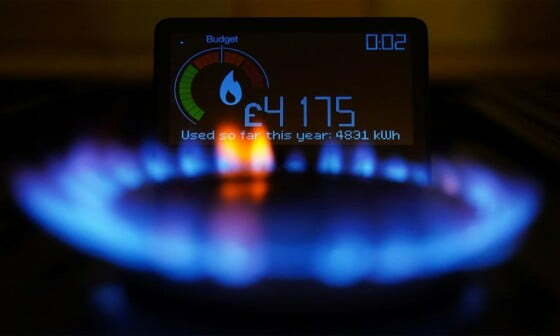Get insights into the energy price cap forecast, anticipating an annual decrease of £150. Understand the complexities, expert cautions, and impact on household energy costs. Learn about consumption projections, sustainable policies, and the global energy market.

Anticipated Decline in Energy Costs: Predicted £150 Annual Decrease, but Caution Advised.
In an upcoming announcement by Ofgem, the next energy price cap is expected to bring potential relief to households, with a projected decrease of around £150 per year starting in October. The latest forecast from energy consultancy Cornwall Insight envisions the price cap settling at approximately £1,925, marking a 7% reduction. If realized, this would be the lowest price cap since March 2022. However, experts caution against misunderstanding the significance of the £1,925 figure.
Contrary to common misconceptions, this figure doesn’t represent the total energy bill but rather limits the cost per kilowatt hour or unit of gas and electricity consumed. The estimation of £1,925 is based on Ofgem’s assessment of an average household’s consumption. As such, individuals using less energy will be charged less, while those with higher consumption will incur greater costs.
Read This: Shortfall in Energy Support Scheme: £3 Million Assistance Missed by Over 700,000 Households
In light of adjusted assumptions regarding average household usage, factoring in this reduced consumption projection, the price cap could potentially lower to approximately £1,823. Specifically, the cost per unit of electricity would be set at 26.96p, and for gas, it would be 6.93p.
Nonetheless, the Cornwall Insight forecast predicts a gradual uptick in bills in the coming months. During the first quarter of the following year, analysts anticipate electricity prices to reach 29.48p, with gas costs around 7.72p. Consequently, this could lead to an additional expense of approximately £150 added to the average annual energy bill.
Dr. Craig Lowrey, Principal Consultant at Cornwall Insight, emphasized that while the forthcoming decrease is a positive development, it highlights the limitations of the price cap as a means of providing substantial relief for households’ energy expenses. He stressed the importance of exploring alternative solutions, such as social tariffs, to ensure both stability and affordability for consumers.
Looking ahead, the forecast also underscores the potential impact of global events on energy prices, particularly the influence of gas price fluctuations. This serves as a reminder of the UK’s dependence on gas imports, making it susceptible to changes in the international wholesale energy market. Dr. Lowrey emphasized the necessity of an adaptable energy policy that accommodates global market dynamics while supporting locally sourced and sustainable energy supplies, contributing to stable energy prices for households across the board.
Read More:
- Escalating Financial Strain: South West Enterprises Confront Hardships Amidst Economic Ambiguity
- Urgent Battle for Wilko: Prospective Buyers Compete to Salvage Troubled Retailer Amid Impending Deadline and High-Stakes Bidding
- Realizing Potential: State Pension Boosted to £220/Week Amid Triple Lock Pledge and Changing Economic Landscape